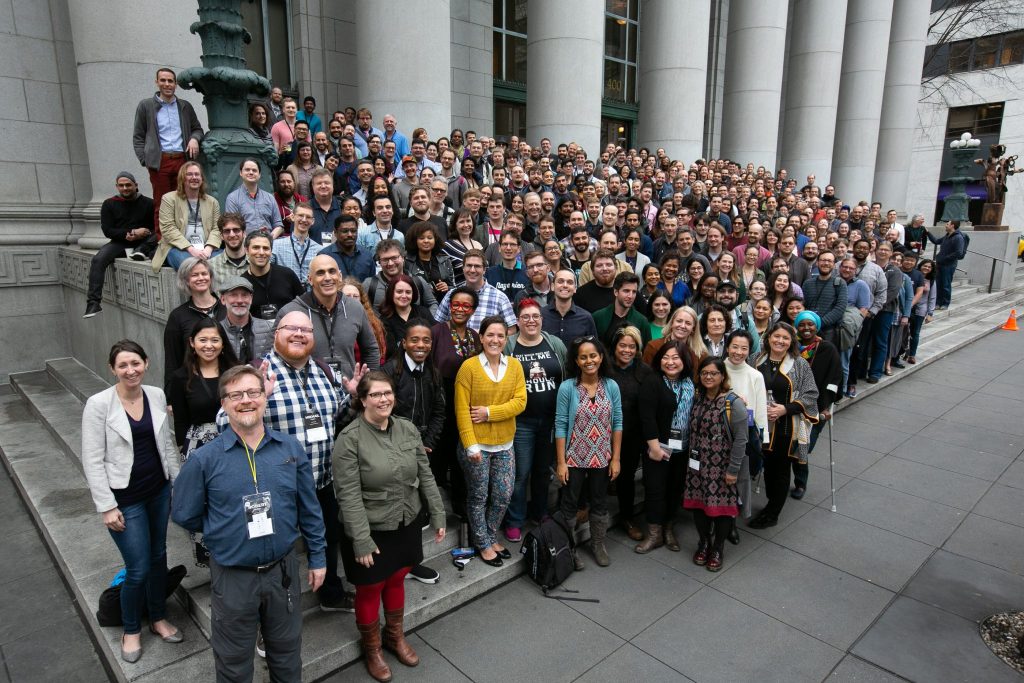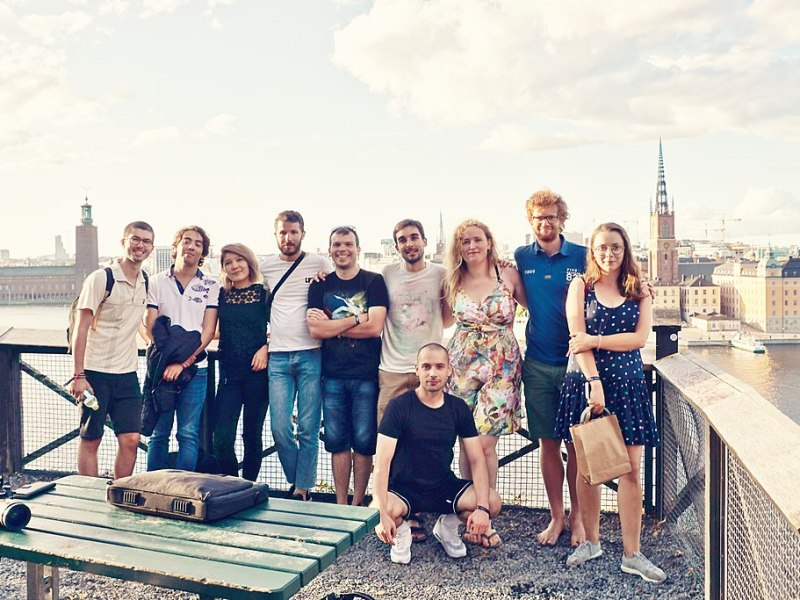Wikipedia and the Wikimedia projects form the largest collaborative collection of free knowledge – written in roughly 300 languages, and built by and for the world. At the Wikimedia Foundation, the U.S.-based nonprofit organization that operates Wikipedia, we strive to reflect the communities we currently work with, and those we hope to work with in the future. With this in mind, diversity and inclusion are core to our mission. In order to build a diverse and inclusive environment, we prioritize impact rather than intention, contributions rather than culture fit, and equity rather than equality.
To help us understand our progress, we’re releasing our 2019 U.S. staff diversity data, as well as information about the gender diversity of professionals we work with outside of the United States. When we shared the Foundation’s workforce diversity data in August 2018 for the first time, we set a goal to focus our programs and initiatives on three values: consistency, transparency, and objectivity. We sought to do this in all parts of the employee lifecycle, including recruitment, onboarding, development, compensation, and promotions. We considered these three values to be a guiding light for the last fiscal year, which ran from July 2018 to June 2019.
With this annual report, our goal is to be transparent in our hiring and staffing efforts, objective in reflecting on our current and future initiatives, and consistent in our communication to our staff and broader community of people we work with about our efforts in diversity and inclusion.
Diversity data for U.S. staff[1]
The Wikimedia Foundation has grown significantly in the last fiscal year. In analyzing the data from fiscal year 2018–19 and comparing it to the data from the previous fiscal year, it’s clear that we are making strides in our hiring practices, but it’s also clear that we have more work to do.
Over the course of the 2018–19 fiscal year, 53% of new hires in the U.S. were women and 30% of new hires were Black/African-American, Hispanic/Latino, Asian, or Native American. Overall, our representation of women in the U.S. increased from 45% to 47%. Moreover, 41% of new hires in the U.S. for technical roles within the Foundation were women, 18% of which were women of color. We continue to have a higher representation of women than men in management and leadership roles, which is unique in comparison with other major technology organizations but is fairly consistent with nonprofit organizations.
While these numbers are representative of consistent progress, we also take note of the work that is ahead of us. The latest data shows that overall only 13% of Foundation employees in the United States are Asian, 8% are Hispanic/Latino, 7% are Black/African-American, 0.4% are Native American/Alaskan Natives, and 5% are multi-racial. Overall, these numbers show an increase in people of color based in the United States as compared to last year’s diversity report, but we still have significant room to improve.
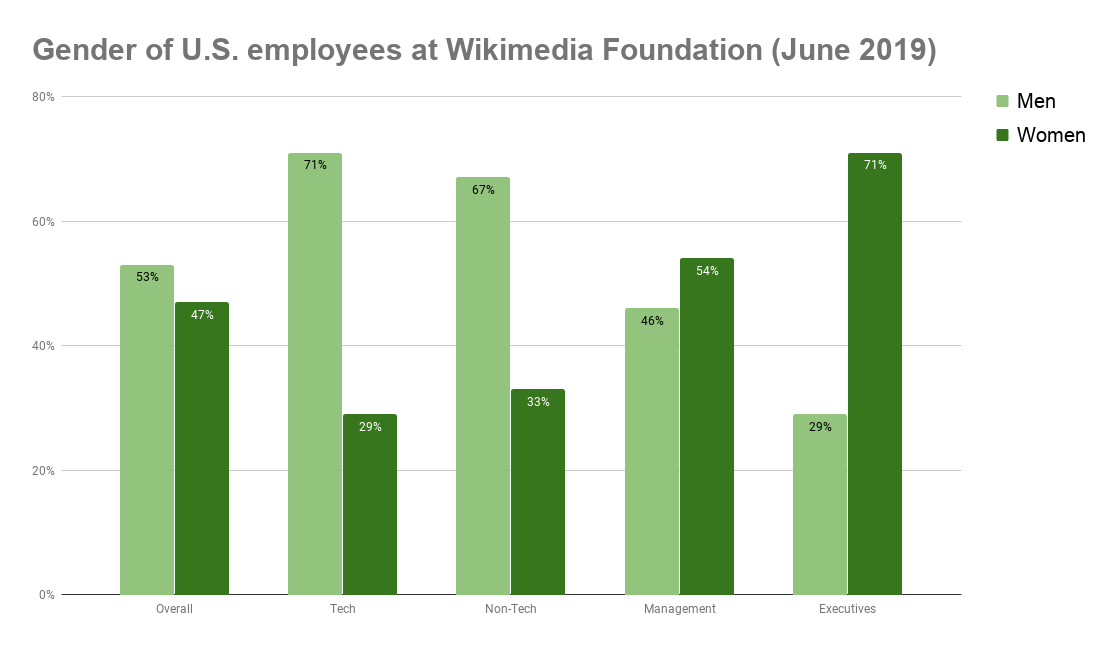
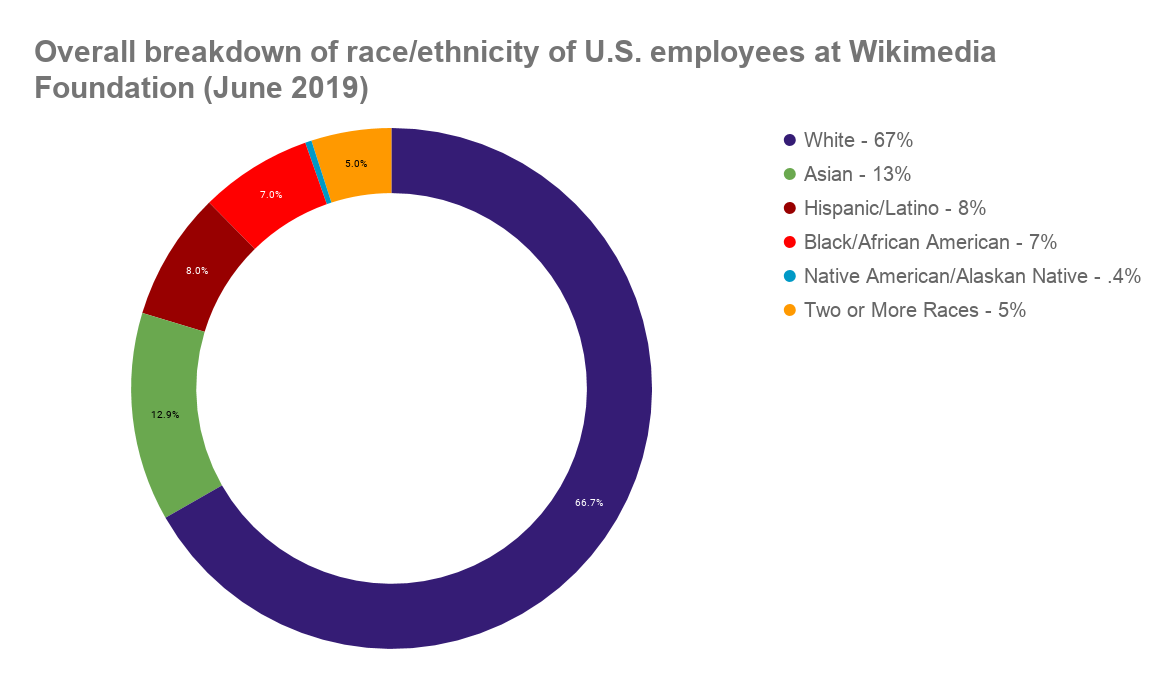


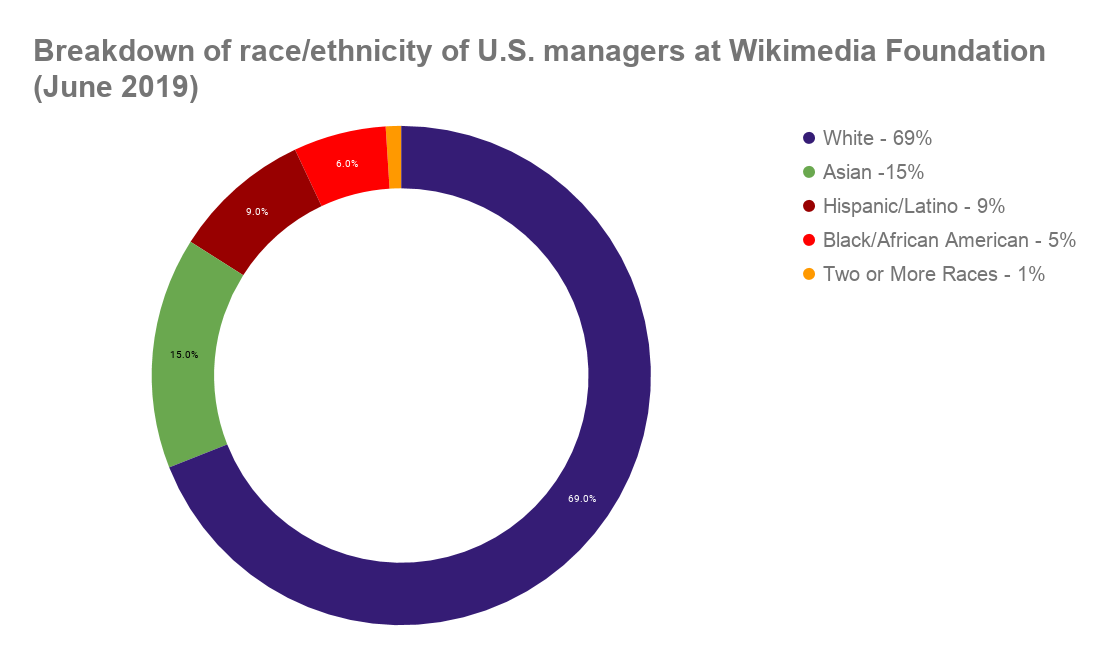

Diversity data for global Wikimedia professionals
While the Wikimedia Foundation is headquartered in the U.S., our mission is global. As we continue to expand the number of people we work with based outside of the U.S., it is important that we continue to measure our progress in diversity in Wikimedia professionals globally.
The graph below covers our last four fiscal years, and illustrates a steady increase in the representation of women worldwide. These advancing numbers are an encouraging sign of progress, but there is still much work to be done in bringing more women into the organization and supporting their advancement. We’re unable to share global race and ethnicity information as collecting such information is not permitted in many countries.
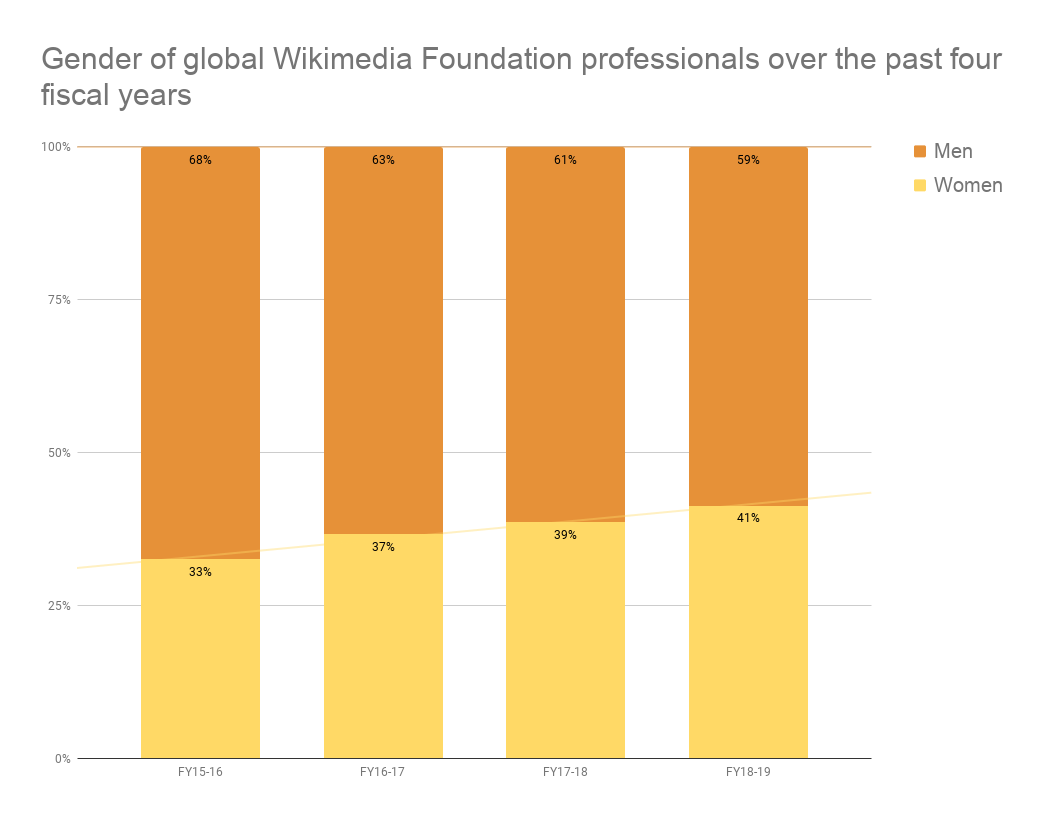
Advancing an inclusive culture
Within the Foundation, we value seeking out the voices that are not currently represented, inviting differing perspectives, and celebrating what makes each of us unique. We’ve undertaken several efforts to advance a culture of inclusion and understand how we can continue to improve:
- During the 2018–19 fiscal year, we achieved a key goal of revitalizing our employee resource groups (ERGs), with five active groups and counting. These spaces provide employees with leadership opportunities, time to connect with their peers, and a space to build community, both internally and externally. In the coming year, we will be sharing guidelines on how to create ERGs that we hope will inspire staff to create even more spaces for community and connection.
- We also kicked off our internal Diversity & Inclusion Speaker Series. This program holds space for our staff to connect with experts and collaborators in various areas of diversity and inclusion work, whether it be in the workplace, academia, or through lived experience. The program has become a space for honest and raw conversations about social justice, equity, and belonging and we look forward to continuing with more opportunities for learning and connection.
- Finally, we began working with Paradigm, a diversity and inclusion strategy firm. They conducted a full assessment of our employee lifecycle by analyzing both qualitative and quantitative data, facilitating focus groups, evaluating our policies, and collaborating with us to create recommendations that will work for our environment. We are confident that their recommendations will enhance our culture of inclusion and enable us to more effectively embed diversity and inclusion throughout our processes and policies.
The strategy as we move forward
The Wikimedia Foundation has grown in recent years in order to better support the growing free knowledge movement. In alignment with the direction of the Foundation and a strategy that looks forward to the year 2030, our focus internally is with service and equity. To carry this out, our diversity and inclusion strategy over the coming months includes: the implementation of the recommendations from Paradigm, the creation of new partnerships with organizations that uphold models of equitable service to support shared learning, the continuation of our Diversity & Inclusion Speaker Series, and bringing on a Global Diversity, Equity, and Inclusion Director. More broadly, we will be focusing on what equity and service means to us as an organization and how these themes can serve as a framework for our culture, including how we recruit new talent and make decisions across the organization.
While we still have work to do, our hope is that this report serves as an indication of where we are and where we’re going on this journey. When we began reporting our diversity and inclusion data last year, we recognized that this was just the beginning. We are always learning new terms, developing new techniques, and finding better ways to make our staff feel celebrated. Change doesn’t occur overnight, but we are dedicated to co-creating a thriving movement that incorporates diversity of thought, respect for all, and a framework where service, equity and liberation take the front seat.
Aubrey Williams, Diversity and Inclusion Program Associate, Talent and Culture
Wikimedia Foundation
Footnote
[1] The diversity data for U.S. Foundation staff is from June 2019 and based on similar data that would be reported in the United States EEO-1 report and includes job category, gender, and race/ethnicity. When evaluating gender in this survey, the data is binary and does not accurately account for individuals who identify along a non-binary spectrum. The EEO-1 survey requires we provide information about Foundation employees based in the United States in each calendar year and does not reflect those we work with through third parties, whether based in the United States or in other countries. Categories are provided by the government, and self-reported by employees. It is important to note that United States law differs from that of many other countries in terms of personal information that must be reported, based in large part on the culture and history behind the laws that require seeking such information about U.S. employees. In contrast to the United States, many other countries prohibit obtaining or reporting information about race/ethnicity. We believe, however, that the United States data is still useful in helping us assess progress relating to overall organizational diversity.
